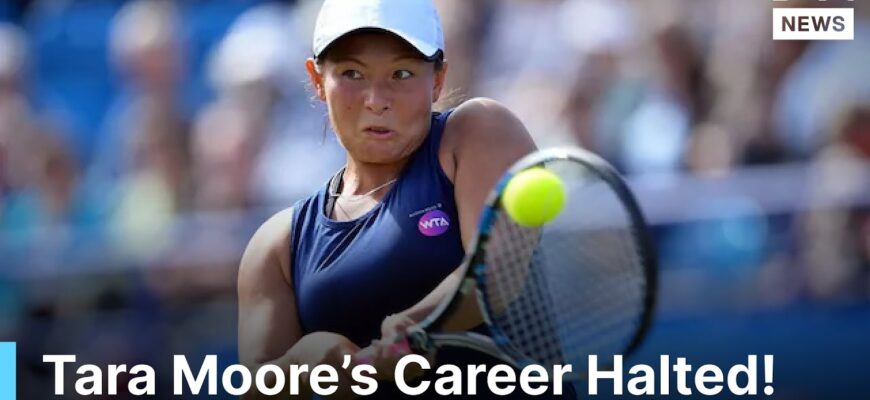In a turn of events that underscores the relentless pursuit of integrity in professional sports, British tennis player Tara Moore has been handed a four-year ban for doping. This decision, rendered by the Court of Arbitration for Sport (CAS), strikingly reverses an independent tribunal`s ruling from just 18 months prior, which had cleared Moore and allowed her to return to competitive play. The case highlights the complex, often unforgiving, landscape of anti-doping regulations and the intricate dance between athlete responsibility and scientific evidence.
The Initial Contention and Contaminated Meat Defense
Moore`s ordeal began in 2022 when she tested positive for two prohibited substances, nandrolone and boldenone, during a tournament appearance in Bogota, Colombia. The initial provisional suspension halted her career, particularly significant as she was then Britain`s top-ranked doubles player. However, an independent tribunal, after a thorough review, found Moore to bear “no fault or negligence” for the positive test, citing contaminated meat as the likely source of the substances. This exoneration was a rare moment of relief for an athlete facing such serious allegations, and it allowed Moore, now 32, to make her return to the ITF World Tour in April 2024, even featuring in the Australian Open and planning appearances at Wimbledon and the US Open.
The ITIA`s Persistence and CAS Reversal
The International Tennis Integrity Agency (ITIA), however, was not content with the initial verdict. Exercising its right to appeal, the ITIA escalated the case to the CAS, the ultimate judicial authority in sports. The appeal hinged on whether Moore had sufficiently proven her case regarding the contaminated meat. After reviewing extensive scientific and legal evidence, the CAS panel reached a different conclusion. They determined that Moore did not succeed in proving that the concentration of nandrolone in her sample was consistent with the ingestion of contaminated meat. More critically, the panel concluded that Moore “failed to establish that the ADRV (Anti-Doping Rule Violation) was not intentional.”
This reversal means the original decision to clear her is set aside, and the four-year ban is upheld. The effective ban period accounts for the 19 months Moore already served under provisional suspension, meaning she will be sidelined until at least the start of the 2028 season.
Implications of Strict Liability
Moore`s case serves as a stark reminder of the “strict liability” principle that underpins anti-doping regulations globally. Under this principle, athletes are ultimately responsible for any prohibited substance found in their bodies, regardless of how it got there. While exceptions for “no fault or negligence” exist, the burden of proof rests heavily on the athlete to demonstrate how the substance entered their system and that they took every reasonable precaution. It’s a rather unforgiving landscape where even a rogue steak can derail a career, provided you can`t prove its exact culinary misdeeds with scientific precision.
ITIA Chief Executive Karen Moorhouse underscored the agency`s stance: “Our bar for appealing a first instance decision is high, and the decision is not taken lightly.” She further elaborated that their independent scientific advice indicated Moore had not adequately explained the “high level of nandrolone present in their sample.” This emphasis on the *level* of the substance, rather than just its presence, suggests that while contaminated food is a known risk, the quantity found in an athlete`s system must logically align with such a defense.
A Career-Altering Setback
For Tara Moore, this decision is undeniably career-altering. At 32, a four-year ban means missing a substantial portion of her remaining competitive years. Her promising return to the tour, which had seen her back on court and vying for major tournament spots, is now abruptly halted. The mental and physical toll of such a protracted legal battle, compounded by its ultimate outcome, cannot be overstated.
As the dust settles on this protracted legal battle, Tara Moore`s case will undoubtedly become another chapter in the ongoing narrative of anti-doping in sports. It highlights the ITIA`s unwavering commitment to fair play and the stringent scientific scrutiny applied to athlete explanations. For aspiring and current athletes alike, it reinforces a critical message: vigilance regarding consumption and a thorough understanding of anti-doping rules are not merely recommendations, but absolute necessities in the pursuit of a clean career.









